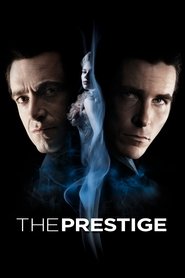Christopher Nolan once said his movies are all driven by single-word themes. The Dark Knight is driven by Chaos. Batman Begins is about Fear. And The Prestige is about Obsession.
Except it’s not.
The big reveal in The Prestige is its downfall. It breaks the film’s strongest character into simple caricatures and pieces.
And it breaks the theme.
In the reveal, we learn that the theme is Obsession and Dedication. Obsession is for young men, and dedication is for lifers. Or something like that.
As Bale’s character becomes paper thin and the theme loses its resonance, the driving force of the film fades away and makes the last five minutes torturous to watch. The film crumbles under the weight of its hubris, because the trick itself isn’t very good.
And every time I watch it with somebody who hasn’t seen it, it’s painful to watch them stumble through the film. Nolan’s insistence on slicing the plot up into barely recognizable pieces was fresh at the time, but in hindsight it feels like an insult to the viewer. It condemns them for not recognizing where they are in the story, but it gives them no visual way to understand what part of the timeline they’re in. There’s no colour shift, additional film grain, or caption declaring the year (that would have been garish, but it would have solved the problem).
I see few reasons the film couldn’t have been presented in chronological order. I think it would have much more emotional weight if it was. Not to mention it would make more sense.
The Prestige is an odd film. It’s fascinatingly intellectual, and requires multiple viewings. Yet it crumbles if you see it too many times. The stitches reveal themselves. The tricks become obvious.
When I first saw the film, I thought it was an exceptional example of film-making. Every time I watch it, my estimation of it decreases.
Yet, there is still some truly incredible film-making here. I really like it more than I make it sound. Despite the editing, and excluding the Big Reveal, I think this is a great movie, and solid proof that Christopher Nolan was eating magic Wheaties for the first few years of his career.
The script is compelling (I would seriously die to read it in chronological order). The characters are mostly interesting (and Jackman is of particular note; the film hinges on his journey). If you can stomach the editing (which I’ll admit is more preference than it is rule), then this is a heckuva ride. It makes you think, which is worth its weight in gold despite any of my issues with the way it makes you think.
But the trick is disappointing. As Michael Caine explains, once you know it, you wish you didn’t.
You want to be fooled.
